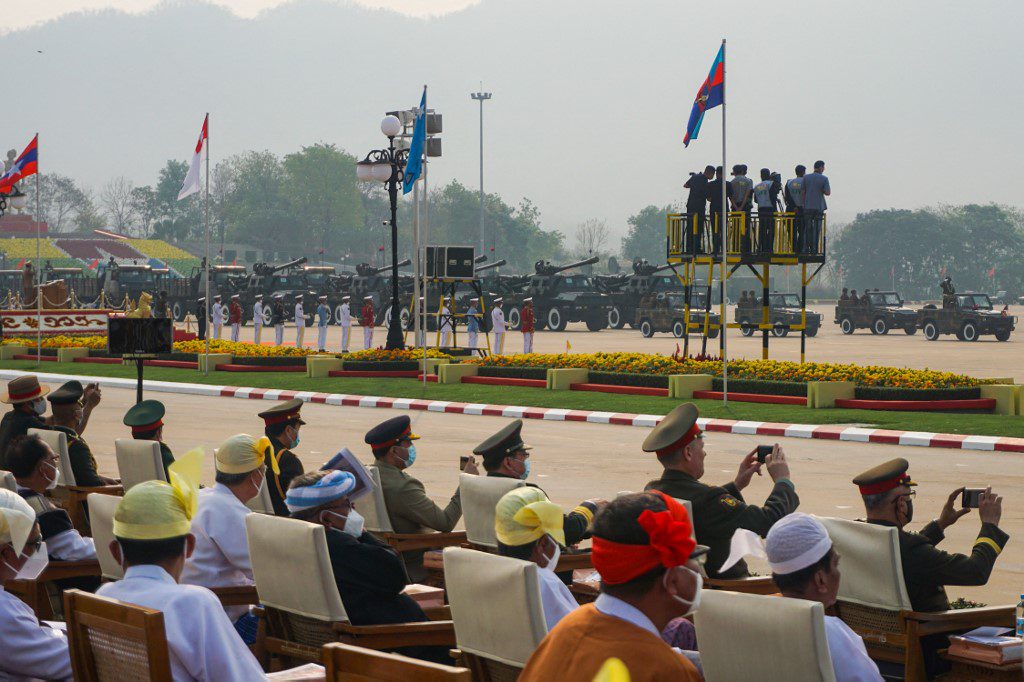Naypyidaw, Myanmar – The ruling group of Myanmar organizes its annual Armed Forces Day parade on Wednesday to demonstrate power as it struggles to control a growing armed resistance that has taken over large areas of land.
The military has experienced a series of significant defeats to an alliance of ethnic minority armed groups, and junta leader Min Aung Hlaing admitted this week that it may not be feasible to hold elections across the entire country due to the instability.
Three years after taking control in a coup, the ruling group is now facing a “life-threatening challenge”, according to a UN expert, with casualties and defections having an impact.
Wednesday will showcase defiance as the military presents troops and equipment for the Armed Forces Day parade, honoring the start of resistance to the Japanese occupation during World War II.
Unlike in previous years, the parade will take place in the evening from 5:15 pm (1045 GMT) due to hot weather, as per a junta spokesman.
Security in Naypyidaw, the remote capital built for the ruling group, was tight with few cars on the roads leading up to the event.
On Tuesday night, leader Min Aung Hlaing attended a formal dinner in the capital with a number of visiting Russian officers.
Moscow has remained a close ally, providing weapons and diplomatic support to the ruling group.
The February 2021 coup against Aung San Suu Kyi’s elected government triggered turmoil that has resulted in thousands of deaths and significant damage to Myanmar’s economy.
During last year’s parade, Min Aung Hlaing — surrounded by tanks and missile launchers — promised “decisive action” against the ruling group’s opponents, but in the past six months, the generals’ control over power has seemed more uncertain than ever.
Several anti-ruling group “People’s Defence Forces” (PDFs) have recruited tens of thousands of young members to combat the army throughout the country.
And in October last year, an alliance of ethnic minority fighters launched a surprise attack in northern Shan state, capturing territory and taking control of profitable trade routes leading to China.
– State of emergency –
Tom Andrews, the UN’s special rapporteur on the human rights situation in Myanmar, stated last week that battlefield losses and recruitment issues were creating “a life-threatening challenge for the Myanmar military”.
The situation has led the ruling group to enforce a military conscription law, enabling it to enlist all men aged 18-35 and women aged 18-27 for two years of service.
The announcement last month prompted thousands of potential recruits to attempt to leave the country, with the Thai embassy in Yangon overwhelmed with visa applicants.
The military justified its coup with unproven allegations of electoral fraud during the 2020 polls won by Nobel laureate Suu Kyi’s National League for Democracy (NLD) party.
It has continuously pledged to conduct new elections — while also extending a state of emergency that prevents them from occurring.
More than 4,500 people have been killed in the military’s crackdown on dissent since the February 2021 coup and over 26,000 arrested, according to a local monitoring group.
Agence France-Presse









